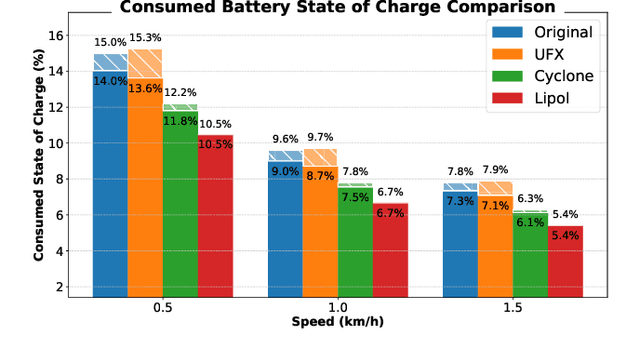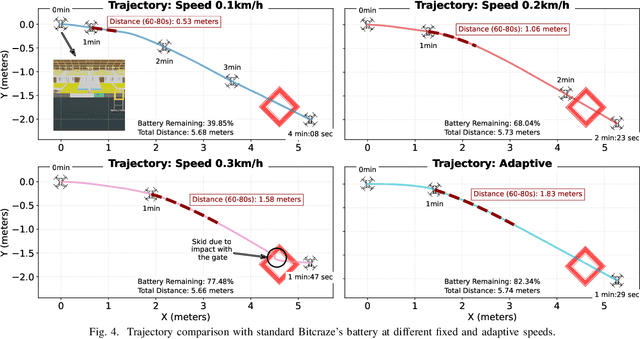Giovanni Pollo
Automatic integration of SystemC in the FMI standard for Software-defined Vehicle design
Aug 27, 2025Abstract:The recent advancements of the automotive sector demand robust co-simulation methodologies that enable early validation and seamless integration across hardware and software domains. However, the lack of standardized interfaces and the dominance of proprietary simulation platforms pose significant challenges to collaboration, scalability, and IP protection. To address these limitations, this paper presents an approach for automatically wrapping SystemC models by using the Functional Mock-up Interface (FMI) standard. This method combines the modeling accuracy and fast time-to-market of SystemC with the interoperability and encapsulation benefits of FMI, enabling secure and portable integration of embedded components into co-simulation workflows. We validate the proposed methodology on real-world case studies, demonstrating its effectiveness with complex designs.
MEbots: Integrating a RISC-V Virtual Platform with a Robotic Simulator for Energy-aware Design
May 22, 2025



Abstract:Virtual Platforms (VPs) enable early software validation of autonomous systems' electronics, reducing costs and time-to-market. While many VPs support both functional and non-functional simulation (e.g., timing, power), they lack the capability of simulating the environment in which the system operates. In contrast, robotics simulators lack accurate timing and power features. This twofold shortcoming limits the effectiveness of the design flow, as the designer can not fully evaluate the features of the solution under development. This paper presents a novel, fully open-source framework bridging this gap by integrating a robotics simulator (Webots) with a VP for RISC-V-based systems (MESSY). The framework enables a holistic, mission-level, energy-aware co-simulation of electronics in their surrounding environment, streamlining the exploration of design configurations and advanced power management policies.
Coupling Neural Networks and Physics Equations For Li-Ion Battery State-of-Charge Prediction
Dec 21, 2024



Abstract:Estimating the evolution of the battery's State of Charge (SoC) in response to its usage is critical for implementing effective power management policies and for ultimately improving the system's lifetime. Most existing estimation methods are either physics-based digital twins of the battery or data-driven models such as Neural Networks (NNs). In this work, we propose two new contributions in this domain. First, we introduce a novel NN architecture formed by two cascaded branches: one to predict the current SoC based on sensor readings, and one to estimate the SoC at a future time as a function of the load behavior. Second, we integrate battery dynamics equations into the training of our NN, merging the physics-based and data-driven approaches, to improve the models' generalization over variable prediction horizons. We validate our approach on two publicly accessible datasets, showing that our Physics-Informed Neural Networks (PINNs) outperform purely data-driven ones while also obtaining superior prediction accuracy with a smaller architecture with respect to the state-of-the-art.
Model-Driven Dataset Generation for Data-Driven Battery SOH Models
Jan 10, 2024



Abstract:Estimating the State of Health (SOH) of batteries is crucial for ensuring the reliable operation of battery systems. Since there is no practical way to instantaneously measure it at run time, a model is required for its estimation. Recently, several data-driven SOH models have been proposed, whose accuracy heavily relies on the quality of the datasets used for their training. Since these datasets are obtained from measurements, they are limited in the variety of the charge/discharge profiles. To address this scarcity issue, we propose generating datasets by simulating a traditional battery model (e.g., a circuit-equivalent one). The primary advantage of this approach is the ability to use a simulatable battery model to evaluate a potentially infinite number of workload profiles for training the data-driven model. Furthermore, this general concept can be applied using any simulatable battery model, providing a fine spectrum of accuracy/complexity tradeoffs. Our results indicate that using simulated data achieves reasonable accuracy in SOH estimation, with a 7.2% error relative to the simulated model, in exchange for a 27X memory reduction and a =2000X speedup.
 Add to Chrome
Add to Chrome Add to Firefox
Add to Firefox Add to Edge
Add to Edge